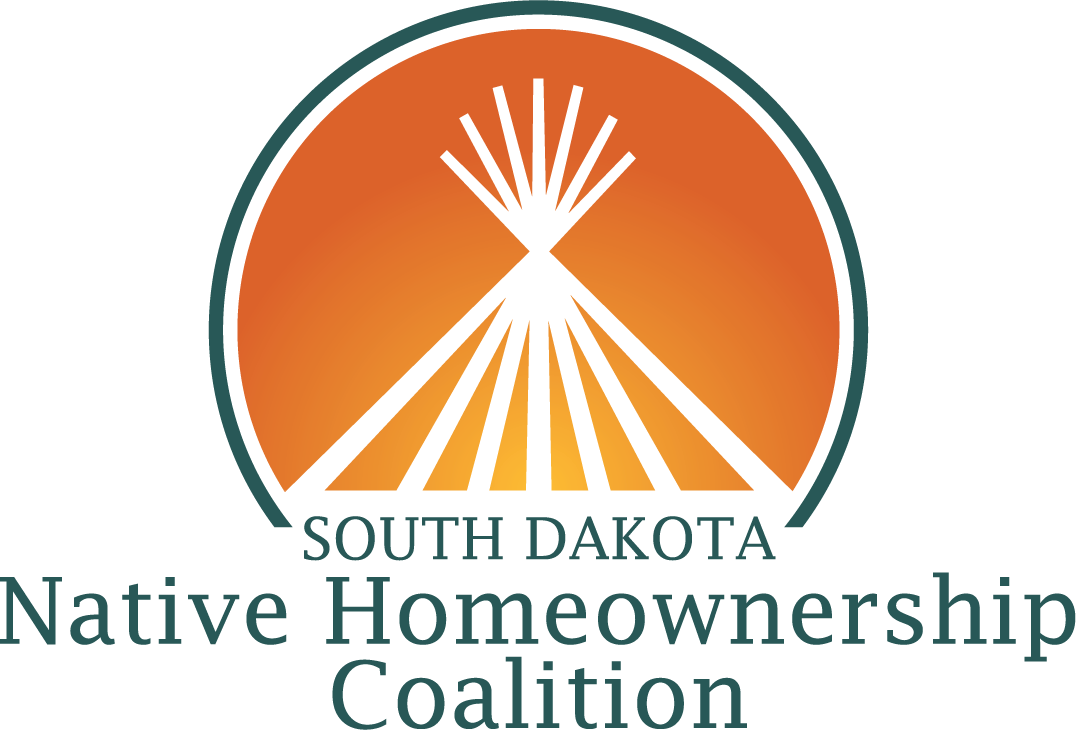With homeownership rates hitting a 12-year high despite the COVID-19 pandemic, Norman Rogers, a U.S. Navy veteran, is celebrating this major milestone alongside many others across the nation. Rogers is the first to close a mortgage loan from the Lakota Federal Credit Union, the only federally insured depository institution on the Pine Ridge Reservation – and also a Coalition member organization.
“The housing shortage is something that impacts so many people here on the Reservation. We believe that homeownership is a viable solution, and we are excited to officially launch our mortgage product to support more families in achieving their homeownership dreams,” said Shayna Ferguson, Branch Manager of the Lakota Federal Credit Union.
Rogers and his wife Eunice care for their 16-year-old grandson, and that was the primary motivating factor in pursuing homeownership after renting for 55 years.
“Paying rent for all those years, we could have owned three houses by now,” says Rogers. Even so, he is satisfied knowing that he is providing his family with a safe place to call home, even beyond his lifetime.
Many first-time homeowners on the Reservation are building assets that will be passed onto future generations, a strategy Tawney Brunsch, Board Chair of the Lakota Federal Credit Union and Executive Director of Lakota Funds, says is critical to breaking the cycle of poverty.
“Our approach to mortgage lending entails more than the immediate need of safe and affordable housing. We are also working on a longer-term strategy that will position our children and grandchildren to be better off financially,” says Brunsch.
Ferguson and Brunsch regularly collaborate to leverage each other’s programs and provide a more impactful experience for their clients. Rogers’ homeownership journey was no exception. Through their partnership and networks, Rogers was able to tap into over $20,000 in subsidies to improve the home’s energy efficiency and offset his mortgage. By working with Lakota Funds, Rogers completed a homebuyer education course and participated in matched savings programs to multiply his down payment. The Housing Assistance Council’s Affordable Housing for Rural Veterans initiative, which is supported by the Home Depot Foundation, provided funding for a new roof, windows, and doors on Rogers’ home, which have reduced his utility costs.
“The great thing about this is that Norman immediately had a substantial amount of equity built into his home,” says Brunsch. “For people on a fixed income, like many of our Reservation families, this provides more flexibility and options in how they handle financial emergencies, should they ever come up in the future.”
As Rogers reflects on his major life events – military service, a successful career in education, establishing schools, obtaining accreditation for Oglala Lakota College, sitting on several school boards – he comes back to a moment in 1956 when he was only one of seven Native American students to graduate Rapid City High School.
“I realized I had a lot more opportunity because I lived in Rapid City. Reservations do not have the same opportunities surrounding work and school as off reservation communities. I saw that back then and I thought, ‘I can make a difference.’ I enjoyed working with kids. Our schools had really low education levels and I fought for something better. I wanted to serve the community and the kids in the community,” he says.
More than a half century later, Rogers is still serving the community. He is paving the road to homeownership for others to follow.
“People like Norman are examples for what is truly possible. He may not know it, but he is inspiring his family members, neighbors, and even our community leaders to achieve more,” says Ferguson, “I can’t think of a better way to celebrate this year’s Veteran’s Day.”
